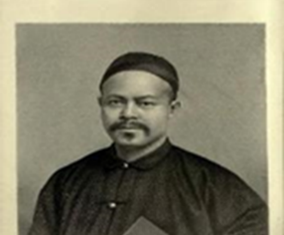Please join us for a virtual presentation by Dr. Charlotte Carrington-Farmer. Dr. Carrington-Farmer is a New England Regional Fellowship Consortium (NERFC) fellow who has been conducting research at the CMCH this summer.
From the late seventeenth century through to the end of the eighteenth century, countless New England vessels braved the eighteenth-century Atlantic in a quest for profit by delivering horses to the sugar colonies in the West Indies. In this virtual talk, Dr. Carrington-Farmer will explore why New England emerged as a breeding ground for horses, and how it came to dominate the equine trade to the sugar colonies. New England’s horse breeding and trading success were tied to the wider currents of rival empire building through the markets for sugar and slaves.
In 1732, the anonymous pamphlet, The British empire in America lamented that the British sugar colonies “will soon be reduc’d to a Condition too wretched to be name, and an End be put to the British Empire in America.” Others, ranging from Members of Parliament to merchants, described how New Englanders undermined the British sugar colonies of Barbados and Jamaica through readily providing the French and Dutch colonies with horses. New England merchants were not concerned with upholding the empire; they simply wanted to make money by shipping horses to wherever they would make the most profit. Building upon the so-called “animal turn in history,” this presentation will reimagine Atlantic history through centring non-human animal experiences.
This virtual program is free. To secure a spot, register now. You will receive an email confirmation with the Zoom link attached, and we will send you a reminder on the day of the program.
Questions? Contact Jennifer Busa, Public Programs and Special Events Coordinator, at jennifer_busa@chs.org.
Image: Horses operating the sugarcane crushing mill: Comble de Moulin, New York Public Library
About the Speaker
Dr. Charlotte Carrington-Farmer is an Associate Professor of History at Roger Williams University, and she specialises in early American History. She received her Ph.D. from the University of Cambridge in 2010. From her dissertation, she published a biography of Thomas Morton in: Atlantic Lives: Biographies that Cross the Ocean (Leiden and Boson: Brill, 2014.) Her interest in dissent in seventeenth-century New England also led to her publishing a chapter entitled: ‘Roger Williams and the Architecture of Religious Liberty,’ in Jahid Hossain Bhuiyan and Darryn Jenson eds., Law and Religion and the Liberal State (Oxford: Hart Publishing, 2020.)
Dr. Carrington-Farmer has a keen interest in equine history in the early modern Atlantic World. Her research examines the breeding and export of horses from New England to West Indies and South America and its intersection with enslaved lives and labour. She has published an article entitled ‘The Rise and Fall of the Narragansett Pacer,’ Rhode Island History, Winter/Spring 2018, Volume 76, Number 1. She has also written a chapter entitled: ‘Trading Horses in the Eighteenth Century: Rhode Island and the Atlantic World,’ in Kristen Guest and Monica Mattfeld, eds., Equine Cultures: Horses, Human Society, and the Discourse of Modernity, 1700-Present (Chicago: University of Chicago Press, 2019), which won the ACRL Choice Magazine Outstanding Academic Title Award 2019.
If you would like to make a donation to help the CMCH keep history alive, please click here. Or, to learn about the benefits of museum membership, click here!



